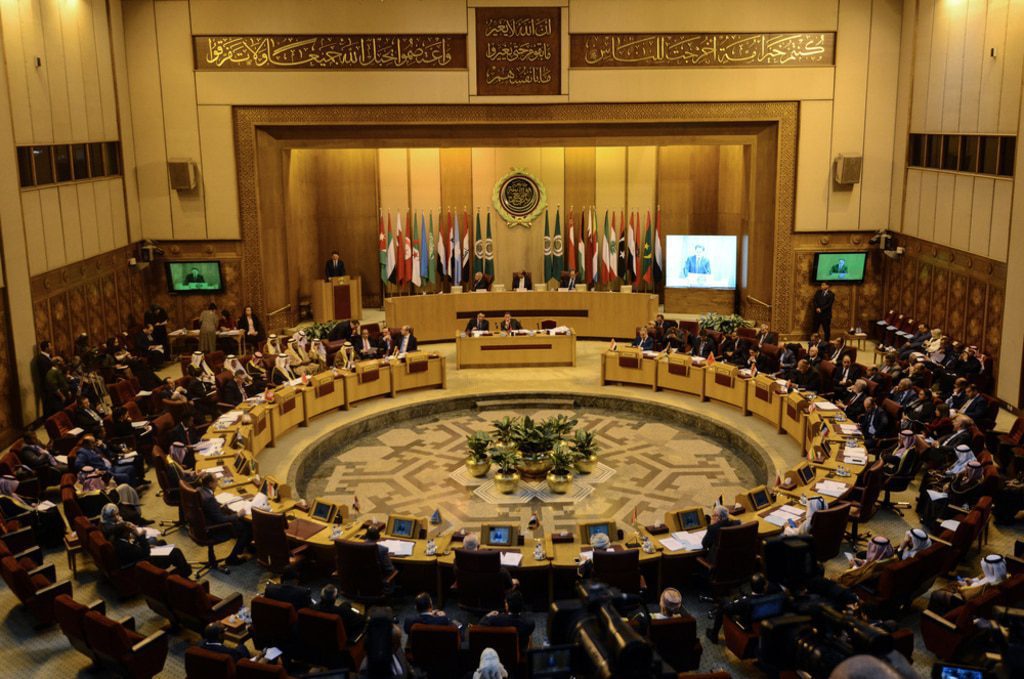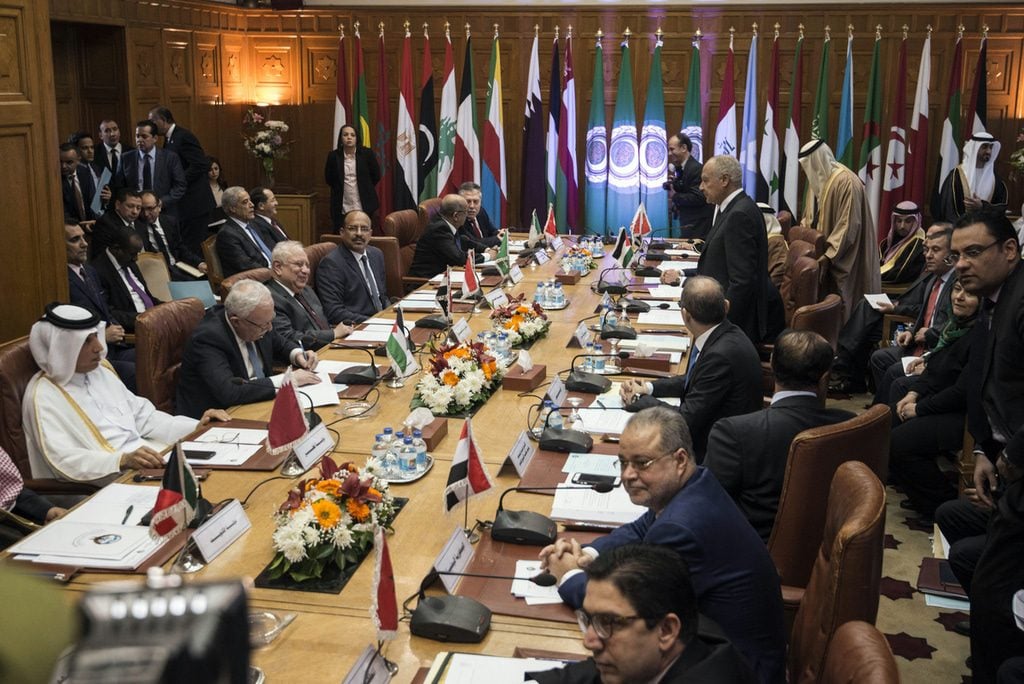
The Arab League has failed to achieve relevance since it was founded in 1945. At the time, seven states signed a pact in Cairo, with the stated mission of ending regional crises, coordinating political goals and fostering economic growth.
The league was united in its opposition to the Zionist project in Palestine. While that remains its official stance today, member states have almost never agreed on how to address that conflict or others in the region.
Twenty-two Arab-speaking nations have nonetheless joined the Arab League since its inception, including Palestine, which the bloc recognizes as a state. Yet rather than each one ceding a part of its sovereignty for a collective purpose, the alliance amounts to little more than a fraternity club for dictators.
One of its biggest shortcomings became apparent during the Iraq invasion of Kuwait in 1990. Saddam Hussein, the Iraq’s president, wanted to punish Kuwait for overproducing oil, which was pushing market prices down and making it difficult for Iraq to sell its own oil at a price that would meet its economic needs.
Kuwait also refused to pardon Iraq’s war debt. During the 1980s, Kuwait had financed Saddam’s army as it fought an almost decade-long conflict with Iran. Against this backdrop, the Arab League tried – but failed – to broker a deal that would address Iraqi concerns. When Saddam’s troops marched into Kuwait on 2 August 1990, internal divisions hindered the league from taking decisive action.
Saudi Arabia thus turned to the United States (US) to secure the kingdom from its own possible Iraqi invasion. The US, with Saudi approval, then launched a bombing campaign against Iraqi troops. The Arab world remains at the mercy of regional and global powers, compelling many observers to ask whether the Arab League ever served a purpose.
Hesham Youssef, who served as the chief of staff to the secretary general of the Arab League for eight years, and then an advisor to the secretary general for three more years until 2013, seems to think so. The Arab League, he said, has the same core problem as blocs such as the European Union (EU) and African Union (AU).
“Any institution of that nature reflects the political will of its member states,” he told Fanack Chronicle over the phone. “So, the question was always how willing member states were to work together and to solve the [crises] in these countries.”
The short answer is that Arab leaders are not very keen to work together. The Arab Spring, for instance, was a major point of contention. According to Youssef, Tunisia supported the popular uprisings that ushered in an era of democracy for its country, while Saudi Arabia and its allies favoured the status quo. He adds that many leaders had little control over their countries when revolutions swept through the Arab world since several governments were overtaken by its people. “[At the time] there was no clear consensus [from the Arab League] regarding our stance toward the upheavals,” he said.
Shifting alliances have also kept the institution from reaching a consensus on nearly every issue. Yet Mouin Rabbani, the regional analyst and co-editor for Jadaliya, an online platform covering the Middle East, told Fanack Chronicle that the bigger issue is that the Arab League is often coerced into adopting the foreign policy of its strongest member. In 2018, he said, Saudi Arabia is in control.
That explains why Syria has been suspended from the league for terrorizing its people, even while no symbolic action has been taken regarding the conflict in Yemen, which the Saudis are bombing indiscriminately.
“The Arab League is not able to act as an expression of its collective will. Instead, its decisions reflect the individual foreign policies of its most powerful countries,” Rabbani said. “The Arab League is like the United Nations Security Council where only one country has veto power.”

That may be true, but the founding principles of the league are arguably more responsible for its demise. Although it was designed to respect the sovereignty of its members, it also claimed to represent the ultimate expression of pan-Arabism. Yet the first pillar has stopped Arab states from mobilizing together to put an end to state-sanctioned massacres and civil wars in the region.
In fact, the Arab League has failed to work together at almost every critical juncture in its history. Even shortly after it was founded, member states could not muster a coordinated attack against Israel, which announced its statehood in 1948 after expelling Palestinians from their homes.
“The league is obsolete,” Khairallah Khairallah, a veteran Arab opinion writer from Lebanon, told The Economist. “It was built to respond to the 1940s and we’re now in the 21st century. The idea of Arab nationalism is dead.”
He is right. Israel, the Arab League’s official nemesis, is even reportedly dealing with Gulf nations behind the scenes. More telling, the boycott against Israel for occupying Palestinian lands has gained more support in Europe than in the Arab world. And Palestinians, of course, are treated either like a burden or a security threat in most Arab nations that host them.
Neither has the Arab League succeeded in establishing a shared economic zone, with less than 10 per cent of the Arab world’s trade being between Arab countries.
Considering all its shortcomings, Rabbani believes that it is high time for the institution to undergo a transformation. He cites as a key example Africa, whose nations were once a part of the Organization of African unity (OAU). Like the Arab League, the OAU failed to end protracted conflicts or resolve political crises. That all changed when African nations disbanded the OAU and formed the African Union (AU) in 2002.
Though not without its own shortcomings, the AU has been far more proactive in interfering in and mitigating crises in the region, wrote Michael Broning in Foreign Policy Magazine. And while security on the continent remains fragile, the AU has at least demonstrated that collective action is possible. It also appears to have a clearer moral vision than the Arab League. In 2013, the AU suspended Egypt’s membership, while the Arab League tried to convince the world to support Abdel Fattah al-Sisi’s military regime.
Rabbani further notes that Africa, with all its political, economic and ethnic diversity, faced a much more difficult task of reinventing itself than the Arab League faces today. Yet if the latter is to undergo a transformation for the better, it can only happen under two conditions. The Arab League, he said, must act collectively to override the influence of its most dominant members while resisting foreign pressure.

